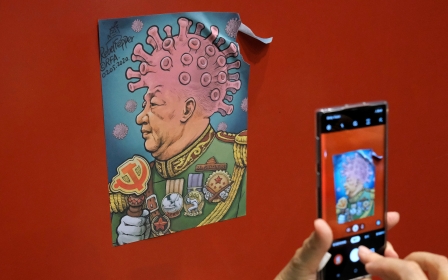Chinese ambassador to Israel found dead in home

The Chinese ambassador to Israel, Du Wei, was found dead at his residence on the outskirts of Tel Aviv on Sunday, police said.
The envoy, who had arrived in Israel in mid-February, was found dead in his Herzliya home, spokesman Micky Rosenfeld told AFP, adding that police were investigating.
Israeli daily Haaretz reported that staff had found Du dead in his bed and that there were no signs of violence.
It quoted a first-aid service as saying the cause of death appeared to be a cardiac incident.
Du's wife and son were not with him in Israel.
Du, 57, had previously served as ambassador to Ukraine, according to his biography on the embassy's website.
Du's death occurred only a few days after US Secretary of State Mike Pompeo called on Israel to put an end to its commercial deals with China, claiming that growing Chinese influence in the country was putting "Israeli citizens at risk".
China is developing a number of Israeli infrastructure projects, including involving water, ports and transport, as part of its Belt and Road Initiative, which stretches over 70 countries on the three continents of Asia, Africa and Europe.
Relations between Washington and Beijing have become increasingly hostile since the beginning of the coronavirus pandemic, which first emerged in the Chinese city of Wuhan.
In an April interview with Israeli newspaper Makor Rishon quoted by Haaretz, Du rejected accusations levied against China during the pandemic, pointing out that he subjected himself to a 14-day quarantine upon acceding to his post in Israel in February.
"I assumed my post in an extraordinary time when China was fighting against the Covid-19," he said at the time. "In history, it has happened many times when the causes of diseases were wrongfully blamed on a specific group of people, which is despicable and should be condemned.
"The disease is the enemy of all mankind, and the world must fight it together."
Middle East Eye propose une couverture et une analyse indépendantes et incomparables du Moyen-Orient, de l’Afrique du Nord et d’autres régions du monde. Pour en savoir plus sur la reprise de ce contenu et les frais qui s’appliquent, veuillez remplir ce formulaire [en anglais]. Pour en savoir plus sur MEE, cliquez ici [en anglais].




